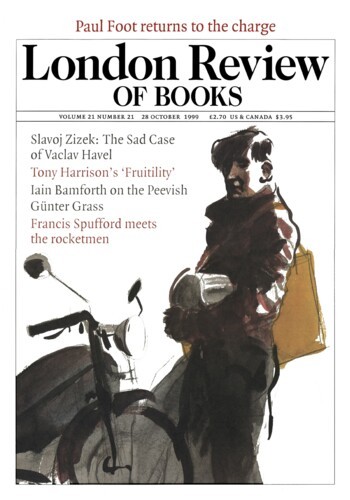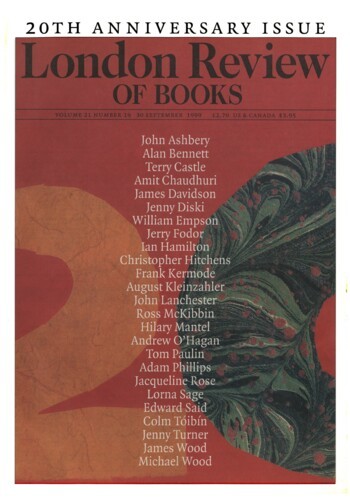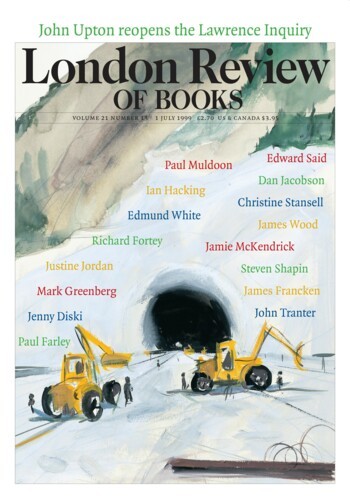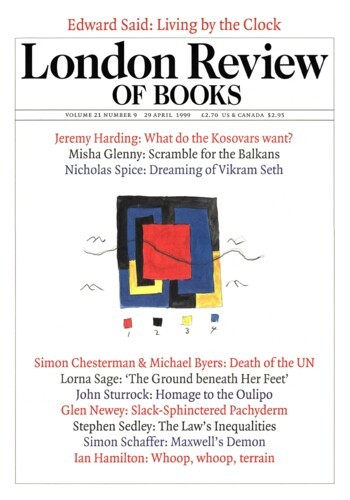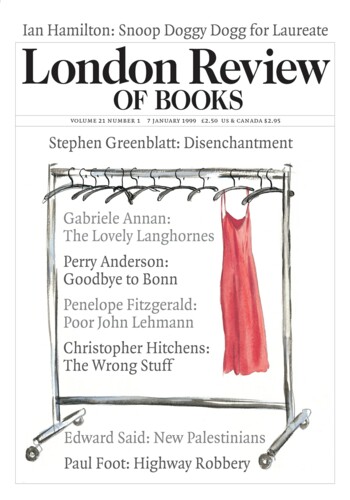In Memory of Tahia: Tahia Carioca
Edward Said, 28 October 1999
The first and only time I saw her dance on the stage was in 1950 at Badia’s Casino, in Giza, just below where the Sheraton stands today. A few days later, I saw her at a vegetable stand in Zamalek, as provocative and beautiful as she had been a few nights before, except this time she was wearing a smart lavender suit and high heels. She looked me straight in the eye but my 14-year-old flustered stare wilted under what seemed to me her brazen scrutiny, and I turned away. I told my older cousin’s wife Aida with shamefaced disappointment about my lacklustre performance with the great woman. ‘You should have winked at her,’ Aida said dismissively, as if such a thing were even imaginable. Tahia Carioca was the most stunning and long-lived of the Arab world’s Eastern dancers (belly-dancers, as they are called today). Her career lasted sixty years, from her first days as a dancer at Badia’s Opera Square Casino in the early Thirties, through the rule of King Farouk, of Gamal Abdel Nasser, Anwar al Sadat and Hosni Mubarak. Each of them, except, I think, Mubarak, imprisoned her at least once for various, mostly political offences. She also acted in hundreds of films and dozens of plays, took part in demonstrations, was a voluble, not to say aggressive member of the actors’ syndicate, and in her last years had become a pious (though outspoken) Muslim known to all her friends and admirers as ‘al-Hagga’. Aged 79, she died of a heart attack in a Cairo hospital on 20 September.‘
